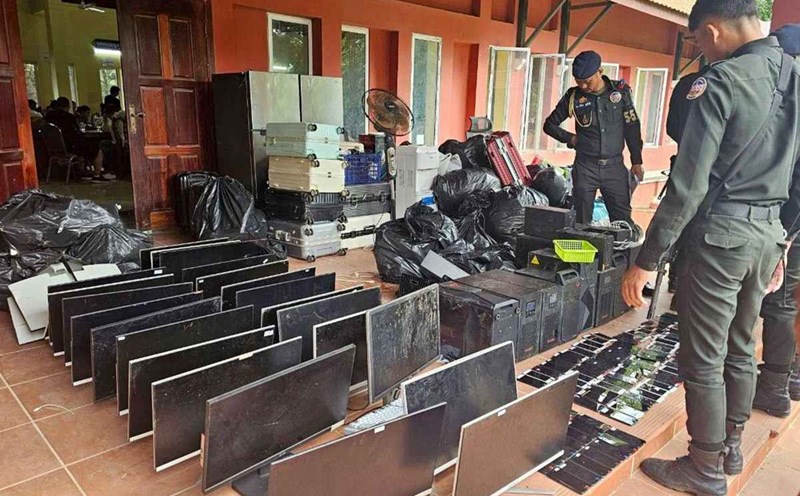On September 9, the US Treasury Department announced a series of sanctions against cybercrime networks in Myanmar and Cambodia, which are said to have embezzled tens of billions of dollars from the US people in 2024 alone.
According to Washington, these criminal organizations have lured and raped hundreds of thousands of people from many countries, imprisoned in complexes along the Thailand - Myanmar border and many locations in Cambodia, forcing them to commit online fraud.
The online fraud industry in Southeast Asia not only threatens the financial security of Americans, but also turns thousands of people into victims of modern slavery, emphasized John K. Hurley, US Deputy Secretary of the Treasury Department in charge of counterterrorism and financial intelligence.
The sanctions list includes nine individuals and companies in Shwe Kokko town, Karen state (M Myanmar), a region bordering Thailand that is known as the capital of transnational fraud rings.
Here, victims were scammed by attractive job promises, then detained, abused and forced to participate in online scams.
Popular tricks include forcing workers into debt, threatening with violence, and even forcing prostitution.
Shwe Kokko was formed in 2017 by Yatai International Holdings Group (registered in Hong Kong, China) and the armed forces of Karen National Army (KNA) - a group in alliance with the Myanmar military government.
Both Yatai and KNA were on the previous sanctions list. After the 2021 coup, the scale of fraud centers in Myanmar exploded, spreading from militia-controlled areas to areas under the control of military rule.
In addition, the US also listed 10 entities in Cambodia on the list of sanctions, accusing the "online fraud banks" here operated by Chinese criminal gangs, focusing on cryptocurrency fraud.
According to the International Justice Organization, many complexes in Cambodia are being organized as closed hospitals.
With a series of new sanctions, the US is expected to stop the huge cash flow nurturing this booming criminal industry.
Online fraud activities in Myanmar and Cambodia not only ring the alarm for the US, but also become a challenge to cybersecurity, human rights and the economy for the entire Southeast Asian region.











